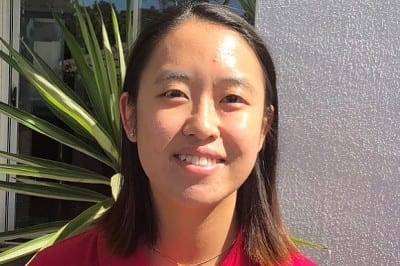
Sally Vuong
‘L-proline-mediated mechanisms driving neural differentiation from mouse embryonic stem cells.’
University of Sydney, NSW
Awarded 2020
Co-funded by Rotary Club of Cronulla
“Mechanisms we discover that drive neural development are potential targets for drug-mediated clinical intervention to slow down or prevent progression, or even prevent the disease from occurring in the first place.”
Researcher Profile
I am a first-generation Vietnamese-Australian PhD Student studying at the University of Sydney. I am passionate about contributing to scientific and medical research, which also allows my analytical and creative side to prosper. Currently, I am in the Bosch Young Investigators Committee, which is a postgraduate student-run committee to manage events for other postgraduate research students, from academia-related such as conferences to social.
I am also a member of the Australasian Society for Stem Cell Research with other academics who specialise in stem-cell research. On the side, I love playing piano, video games, dodgeball and producing digital art.
Project Summary
Motor neurone disease (MND) is a terminal, neurodegenerative disorder that shuts down nerve cells (neurons) that control muscles involved in breathing, swallowing, talking and moving. As a result, these muscles become weak and waste away. MND has a high mortality rate and affects >2000 Australians in all age groups with a prevalence rate of 1 per ~11,000. Currently, there’s no known effective treatment or cure for MND in part because we know little about how the nervous system develops.
Growth factors are naturally occurring substances that promote embryo development. We’ve discovered that a simple molecule, an amino acid called L-Proline, behaves like a growth factor to promote embryo development, including nervous system development. L-Proline is broken down (metabolised) in cells by the proline cycle. This cycle affects cell metabolism, which can influence cell fate. For example, cells might grow and divide more rapidly, undergo programmed cell death or change (differentiate) into a new cell type.
The main aim of this project is to understand how this simple growth factor promotes normal nervous system development. Instead of using animals, we’ll use stem cells as a laboratory model of embryo development. We can control this system easily and learn about the complex mechanisms involved. We’ll use L-Proline to differentiate stem cells into neural cells. We’ll focus on how L-Proline changes cell metabolism and allows this differentiation process to take place.
The project will help us understand how normal nervous system development occurs and what happens when things go wrong, like in MND.
Supervisors: Dr Michael Morris & A/Professor Margot Day